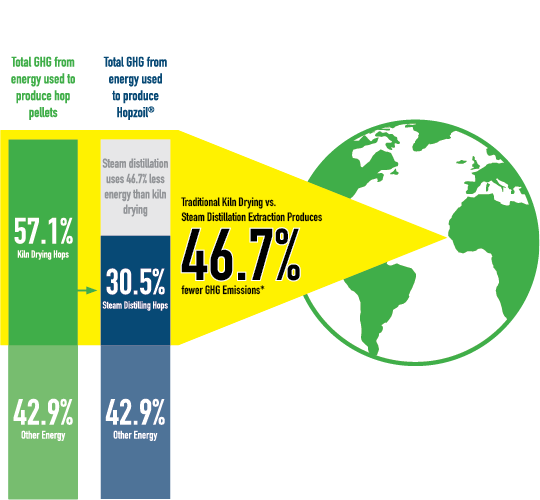
Sustainability
Comparing GHG (Greenhouse Gas) emissions of Hopzoil® vs. Traditional Hop Pellets

GHG Emissions from producing hop pellets are broken down as follows:
• 74% comes from energy (total represented in chart)
• 22% comes from chemicals (not represented in chart)
• 4% is other contributors (not represented in chart)
Energy used to produce whole, dried hops equals 74% of the entire grow/harvest/dry GHG of hops. Kiln-drying hops for storage stability is the single largest contributor to the GHG of traditional hop farming, due to the use of propane and natural gas.
Producing Hopzoil® uses 46.7% less energy than kiln drying, reducing the GHG of hops processing down from 51.7% to 30.5%.
Sustainability BONUS
- More efficient shipping – Instead of shipping pellets via a pallet by freight truck or ocean container, Hopzoil is shipped via FedEx or UPS Air or Ground at a fraction of the GHG, cost, and time.
- More efficient storage – Hopzoil is never frozen or refrigerated. Room temperature storage eliminates the need for costly cold storage (no electricity needed for freezers!)
All the wet hops that can be crammed into a 53-foot long reefer… Would produce only 12-45* liters of steam-distilled hop oil.

*Each hop variety contains different amounts of oils. For example, it takes 1,000 pounds of fresh Saaz hops to produce one liter of oil, while the same amount of fresh Cascade would produce five liters.
Certifications and Standards

Salmon Safe
Salmon-Safe works with West Coast farmers, developers, and other environmentally innovative landowners to reduce watershed impacts through rigorous third-party verified certification.

Global G.A.P.
Global G.A.P (Good Agricultural Practices) is the world’s leading standard for safe, sustainable agriculture and the most widely accepted private sector food certification in the world.

Kosher
All Hopzoil products are certified Kosher for year-round use, excluding Passover.

